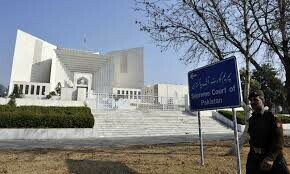LAHORE, Sept 24: It was the fourth such national-level breakdown during the last seven years. After the breakdowns of 1999, 2000 and 2002, the government had expressed determination to conduct inquiries, fix responsibility and take culprits to task. But neither any finding was made public nor any official was taken to task.
Sunday’s breakdown was also followed by identical reaction - the minister of water and power and the prime minister ordering inquiries, asking Wapda to submit a report in the next 48 hours.
In all three previous reports, sources said, experts had blamed grossly-overloaded transmission system and suggested new projects to augment it. No individual was held responsible during the last three breakdowns, but the blame was squarely put on the weak system.
Keeping in view the previous experience, sources said the authority would again blame the over-stretched transmission system and suggest a few more projects.
According to some power transmission experts, such countrywide breakdowns do not come out of blue. They are rather product of years of neglect.
Tracing the cause of the current breakdown, they said in early nineties when the IPPs were allowed into the generation, the experts had suggested a series of transmission projects to be completed along side IPPs. The Water and Power Development Authority, however, ignored the counsel and refused to invest any money into the transmission system for next nine years - from 1994 to 2003. This weakened the system almost beyond redemption.
“Those at the helm of affairs of Wapda in those nine fateful years have now retired and no one is there to take responsibility.”
Of late, the authority initiated a few projects to lift the transmission system, but they, according to experts, were a typical case of being too little too late. Presently, 12 transmission system projects worth Rs14 billion have been completed and another 18 projects worth Rs36 billion are underway which will be completed in 2008.
Two former members (power) say that all these projects should have been completed by the year 2000. They are late by eight years, and power demand during this period has grown by, on an average, 10 per cent each year. This means by the time these projects are complete, demand for power will have gone well beyond them.
The government, according to them, has to investigate those running the authority during these years and see how and why the advice of the experts was ignored. Most of these recommendations are documented and lying with the authority. The government must form a commission to see who did what during these years and why was it done like that. —- Ahmad Fraz Khan















































Dear visitor, the comments section is undergoing an overhaul and will return soon.